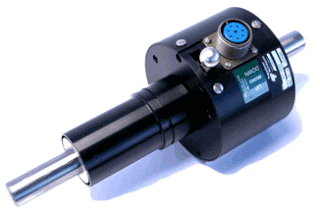From engines to conveyor belt motors, there are many applications for tracking the speed of rotation (RPM, revolutions per minute). It’s now possible to also measure the force, or rotary torque (Newtonmeter (Nm) or pound-foot (lb-ft)), that’s making the rotation happen. Even the most basic businesses rely on modern technology to stay competitive and profitable, and torque measurement has many industrial benefits.
Reaction torque, produced by a direct force, can be measured by simple force measurement tools such as stress gauges. Both rotation and reaction measurements help to understand many stresses that occur on materials and equipment.
A torque sensor is made of a special device that measures some aspect of the shaft that’s turning to determine the torque, and then returns a value by analog or digital signal. Some of the technologies in use or under development for measuring torque include strain gauges assembled in sets to measure rotary torque, and sensors that measure shaft twist or SAW (surface acoustic wave) devices that measure tiny stress-produced waves in the material.
A common use of these sensors is materials testing, where it’s important to be able to measure the force that is being applied to a material during strength or stress testing. Testing to failure, a technician can produce a report that shows exactly what forces were applied to the material and at what time during the test, helping to understand how the material responds to stress.
Many companies can use a torque sensor in conjunction with each motor in a material processing system to ensure that the correct amount of force is being applied during manufacturing. By measuring how the manufacturing system is operating, engineers can avoid having to determine the source of faulty parts as motors work harder to operate worn-out tools.
Highly accurate and sensitive sensors are used by companies in medical equipment from surgical staplers to robotic surgery machines. Sensor technologies are advanced enough to provide measurements down to 0.1 Nm (0.9 lb-in) and below.
Combining material testing and medical applications, accurate measurement of torque is essential when performing repetitive lifetime testing of replacement joints such as shoulders or knees. Engineers can note when joints begin to fatigue and require additional force to operate normally, using sensors in multiple axes as needed.
For larger applications, torque in the hundreds or thousands of pound-feet is no problem for robust sensors used on large engines, turbines and other heavy equipment. These sensors can be coupled into the drive line to provide operational measurements.
Specialized companies designing vehicles, transport systems, automated material handling and other complex mechanical systems can use torque sensing to monitor for motor problems or increased load presented by moving parts in the system, providing an ability to predict servicing needs before the equipment fails.
Because of the variety of contact and non-contact measurement technologies available, torque measurement sensors are a versatile aid in improving the quality and reliability of most products, and are especially useful for specialty and precision product manufacturing and testing.


